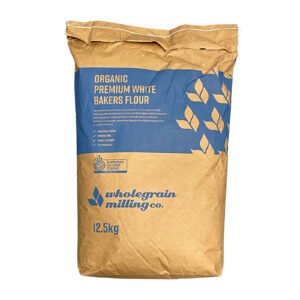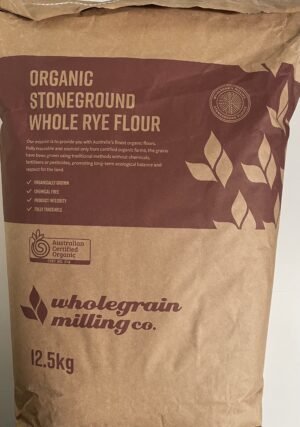Sourdough and your gut may be more closely linked than you realize. The gut plays a critical role in overall health, influencing everything from digestion to immune function. Neglecting gut health can lead to a range of issues, including digestive discomfort, nutrient malabsorption, and weakened immunity.
Fortunately, incorporating sourdough into your diet can be a delicious way to support a healthy gut. Let’s explore the positive impact of sourdough and your gut’s well-being.
Whole Rye: Benefits and Use in Artisanal Baking.
Table of Content
Fermentation: Making Sourdough Gut-Friendly
A key aspect of the relationship between sourdough and your gut is the fermentation process.
The natural fermentation that sourdough undergoes makes it more gut-friendly compared to standard bread. This process involves beneficial bacteria breaking down the flour’s carbohydrates and gluten, resulting in a bread that’s easier to digest.
These bacteria produce lactic acid, which not only gives sourdough its characteristic tang but also lowers the bread’s glycemic index.
A lower glycemic index means less blood sugar spikes, which is beneficial for your gut and overall health.
Probiotics and Prebiotics in Sourdough
Sourdough and your gut health are also connected through the presence of probiotics and prebiotics.
While sourdough doesn’t contain probiotics after baking (since the heat kills these bacteria), the fermentation process increases the levels of prebiotics in the bread. Prebiotics are dietary fibers that feed the good bacteria in your gut.
A diet rich in prebiotics, such as those found in sourdough, can help promote a balanced gut microbiome, essential for good digestive health and a strong immune system.
Reducing Phytic Acid for Better Nutrient Absorption
Another benefit of sourdough and your gut health relationship lies in its ability to reduce phytic acid. Phytic acid, found in grains, can bind to minerals like zinc, iron, and magnesium, hindering their absorption by the body.
The fermentation process in sourdough reduces the phytic acid content, making these nutrients more available for your body to absorb.
This aspect of sourdough can be particularly beneficial for those looking to enhance their nutrient intake and support their gut health.
Sourdough and your gut have a symbiotic relationship that can significantly impact your health. The natural fermentation process, the presence of prebiotics, and the reduction of phytic acid all contribute to making sourdough a gut-friendly choice.
By including sourdough in your diet, you’re not just enjoying a delicious bread, you’re also taking a step towards nurturing your gut health, which is integral to your overall well-being.






